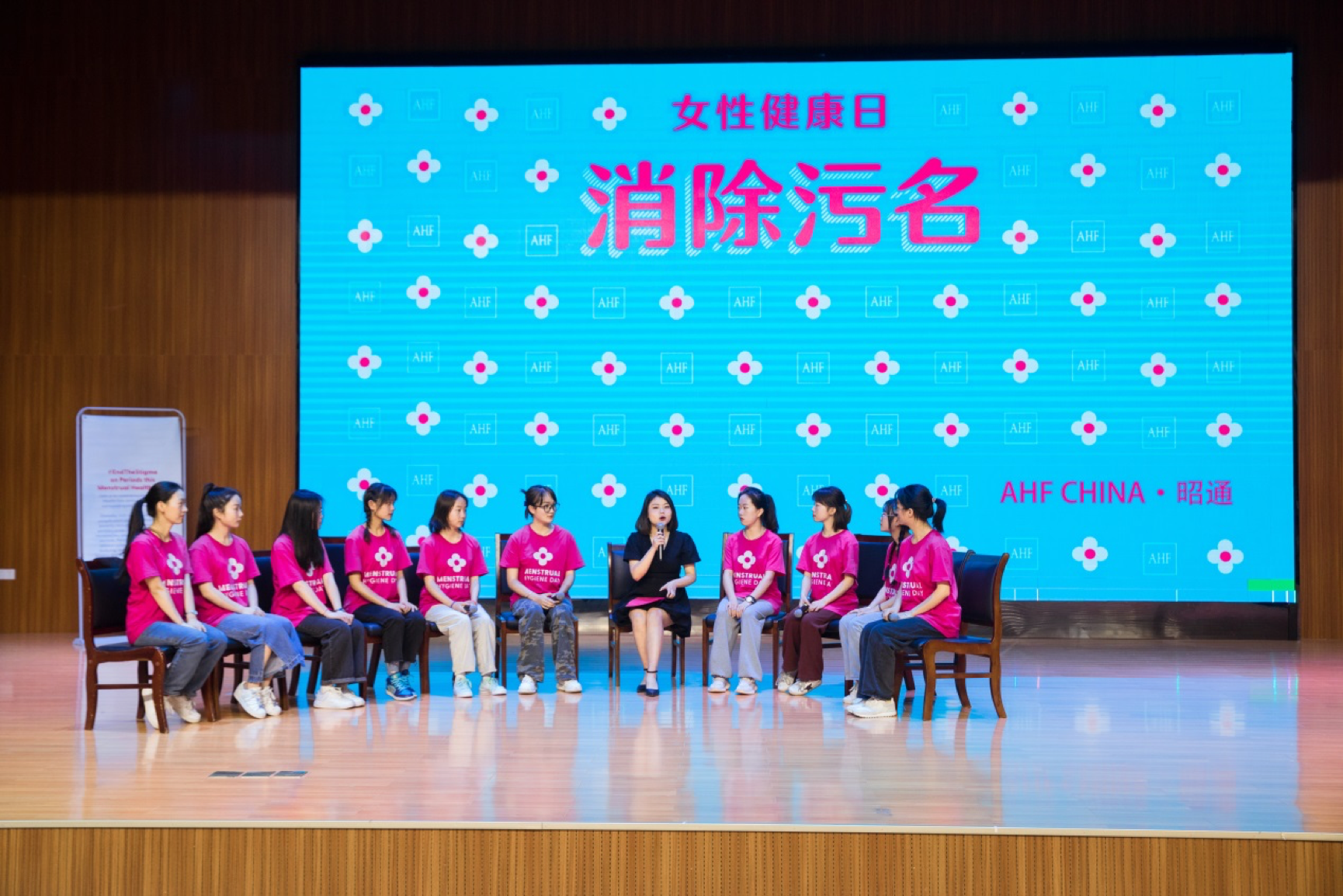
Teachers and students from Zhaotong, southwest China's Yunan Province, held an activity themed "Remove the stigma of menstruation and Pay attention to women's health" on May 28
A number of "Menstrual Hygiene Day" activities under the theme of "Eliminating stigma" were held around China on Saturday, which marked International Women's Health Day, aiming to make more people aware of women's health and to allow more women travel as freely as possible without being hindered by menstruation.
Schools, medical institutions, media, social organizations and influencers followed and discussed the phenomenon of "menstruation stigma" and measures to "eliminate stigma," jointly calling for tax reductions and exemptions on sanitary napkins, and providing assistance to those in need.
Female workers and those living with HIV who participated in the event in Kunming, the provincial capital of Southwest China's Yunnan Province, were encouraged to face up to their physical health during their period, and several men were also invited to express their views on "eliminating the stigma of menstruation."
"About half of the world's 7.5 billion population experience menstruation every month, but such a common phenomenon is often stigmatized," said Fu Hong, a doctor of obstetrics and gynecology at Beijing Hospital of Integrated Traditional Chinese and Western Medicine, noting that women's attempts to hide menstruation, or their plight of not receiving adequate care during menstruation, are all part of the stigmatization of menstruation and need to be addressed by society.
Bao Yugang, Asia Bureau Deputy Chief of the US AIDS Healthcare Foundation (AHF) said in an interview that caring for women's health is not just a slogan, but requires a proper understanding of women and their difficulties, calling on all people to stop stigmatization and discrimination and build a harmonious and friendly society where women can realize their potential.
One of the missions of the AIDS Health Foundation is to provide menstruation products that eliminate shame and stigma, thereby safeguarding women's physical and mental health. The foundation calls for tax reduction and exemption for sanitary napkins, providing sanitary napkins free of charge to those in need as well as offering sanitary napkin boxes in schools, restaurants and other places, so that women's travel is not troubled by menstruation as far as possible.
According to a survey, the price of sanitary napkins has also been rising year on year, with the average price of different brands of sanitary napkins ranging from 1 yuan to 13 yuan ($0.15 to $1.9).
Furthermore, the ex-factory price of a single sanitary napkin is about 0.2 yuan ($0.03), including the cost of materials, labor and production. The rest is made up of layers of dealer markups, marketing fees and celebrity endorsements.
China levies a 13 percent value-added tax on each sanitary napkin. Compared to the value-added tax of more than 20 percent per piece in countries including Hungary and Sweden, and 5 percent in France and the United Kingdom, China's tax rate is at a medium and high level.
The good news is that most women in China can afford sanitary pads, but that doesn't mean they need to pay for expensive marketing and celebrity endorsements.
Many public welfare organizations and institutions in China advocate tax relief for sanitary napkins, which can adjust the market to some extent, putting pressure on brands and manufacturers to reduce prices.
Global Times

